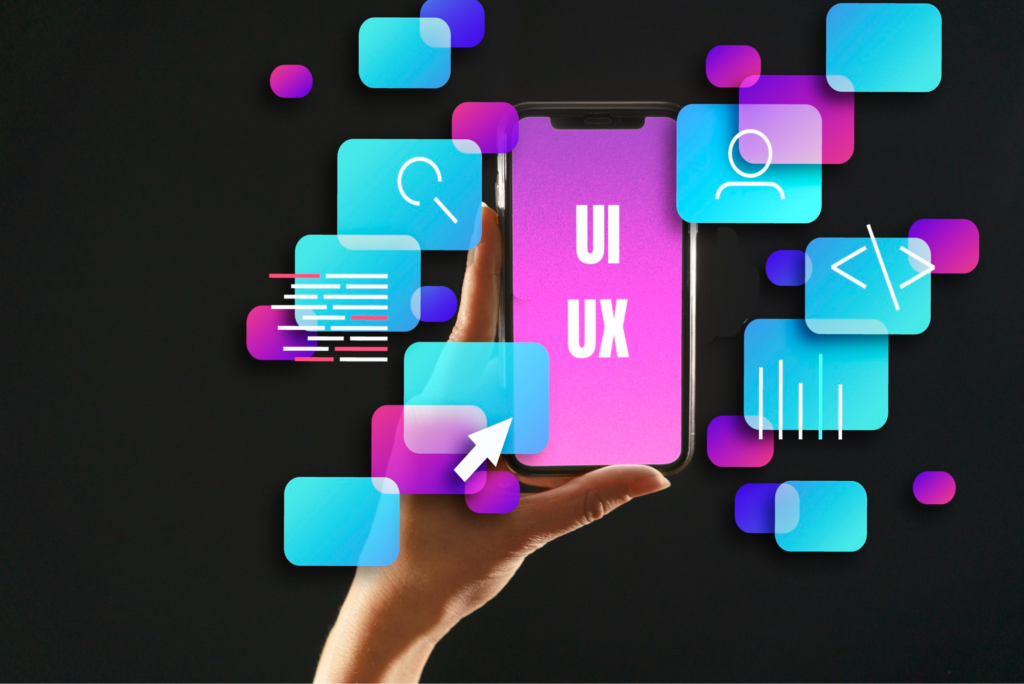
Posted On: September 8, 2023
The Future of UI/UX: Predictions and Emerging Technologies
In the fast-paced world of technology, staying ahead of the curve is essential for businesses and designers alike. User Interface (UI) and User Experience (UX) design have come a long way, evolving alongside technological advancements. As we look ahead, it’s clear that the future of UI/UX holds exciting possibilities driven by emerging technologies and changing user expectations. In this blog post, we’ll explore some predictions for the future of UI/UX design.
1. Voice User Interfaces (VUIs) and Conversational Design
Voice-activated devices like Amazon’s Alexa and Apple’s Siri have already made their way into our homes and pockets. In the future, we can expect to see more widespread use of voice user interfaces. UI/UX designers will need to focus on creating conversational experiences that are natural and intuitive, with an emphasis on context and personalization.
2. Augmented Reality (AR) and Virtual Reality (VR)
AR and VR technologies are poised to revolutionize UI/UX design. From immersive virtual shopping experiences to augmented reality navigation, designers will need to adapt to designing for 3D spaces. Crafting intuitive and engaging experiences in these environments will be a key challenge.
3. AI-Driven Personalization
Artificial Intelligence (AI) is already used to personalize content and recommendations. In the future, AI will play an even more significant role in UI/UX by predicting user needs and adapting interfaces in real-time. This level of personalization will require designers to strike a balance between convenience and privacy.
4. Biometric Authentication
Biometric authentication methods, such as facial recognition and fingerprint scanning, are becoming more commonplace. UI/UX designers will need to consider the user experience of these technologies, ensuring they are secure, user-friendly, and accessible.
5. Minimalism and Microinteractions
UI design trends may continue to favor minimalism, but with a focus on microinteractions. These subtle animations and feedback mechanisms can greatly enhance the user experience, providing visual cues and delighting users as they interact with digital interfaces.
6. Ethical Design and Accessibility
As technology becomes more integrated into our lives, the importance of ethical design and accessibility will grow. Designers will need to consider the ethical implications of their work, such as the impact of addictive design patterns, and ensure that their interfaces are accessible to all users, including those with disabilities.
7. Cross-Platform and Multi-Device Design
Users interact with digital content across multiple devices, from smartphones to smart speakers. Designing seamless cross-platform experiences will be essential. UI/UX designers will need to create interfaces that adapt gracefully to different screen sizes and input methods.
8. Data Visualization and Information Design
With the increasing volume of data generated, there will be a greater demand for effective data visualization and information design. Designers will need to find innovative ways to present complex information clearly and intuitively, aiding decision-making and understanding.
9. Emotionally Intelligent Design
UI/UX designers of the future may need to incorporate emotionally intelligent design principles. This involves understanding and responding to users’ emotional states, providing empathy and support through digital interactions.
10. Environmental Sustainability
Sustainability is a growing concern, and it will extend to UI/UX design. Designers will need to consider the environmental impact of their digital products, from energy-efficient designs to reducing digital waste.
In conclusion, the future of UI/UX design is exciting and full of possibilities. Emerging technologies will continue to shape how we interact with digital interfaces, and designers will play a pivotal role in creating meaningful, accessible, and user-centric experiences. By staying informed, adaptable, and ethically conscious, UI/UX designers can help shape a future where technology enhances our lives in profound and positive ways.
As we look ahead, it’s clear that the field of UI/UX will remain dynamic, ever-evolving, and central to the way we interact with technology in an increasingly digital world.




